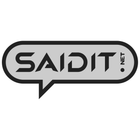
Digg
Digg is a popular news aggregator offering a curated selection of trending stories across various topics. It emphasizes community interaction and provides a clean interface for discovering and sharing content.
About Digg
Digg positions itself as more than just a news feed; it's a platform for discovering and engaging with the most important and interesting stories on the web. Its core strength lies in its curated approach, aiming to filter out the noise and present a focus on topics like science, viral content, and significant political developments. This isn't your traditional RSS reader; Digg is designed to be a dynamic, evolving snapshot of what the internet is talking about.
Key features include:
- Community-Driven Curation: While there's editorial oversight, a significant portion of content visibility is influenced by user interaction and 'digging' stories. This fosters a sense of community and helps elevate truly engaging content.
- Clean and Intuitive Interface: Digg has historically been praised for its minimalist design, making it easy to navigate and focus on the articles themselves.
- Sharing and Social Features: Seamless integration for sharing stories across social platforms is fundamental to Digg's design, encouraging the spread of compelling content.
- Offline Reading: For users on the go, the ability to save articles for offline access is a practical and valuable feature.
Digg caters to users who want a filtered, engaging news experience without being overwhelmed by a constant stream of information. It's a platform that encourages both consumption and participation, aiming to be a central hub for internet culture and trending topics.
Pros & Cons
Pros
- Curated selection of trending and engaging content.
- Clean and user-friendly, ad-free interface.
- Community interaction influences content visibility.
- Offline reading capability.
- Easy sharing of articles.
Cons
- Content scope is focused, may not be comprehensive on all topics.
- Reliance on curation can introduce subjectivity.
- May not be suitable for users requiring real-time coverage of every event.
What Makes Digg Stand Out
Curated Internet Culture News
Focuses on delivering a curated selection of stories relevant to internet trends, science, and viral phenomena.
Community-Driven Discovery
Empowers users to influence the visibility of content through votes and interactions.
Ad-Free Experience
Provides a distraction-free reading environment by omitting advertisements.
Features & Capabilities
13 featuresExpert Review
Digg Software Review
Digg has carved a niche for itself in the crowded digital news landscape by positioning itself as a curated aggregator of internet-centric content. Unlike traditional news platforms or comprehensive RSS readers, Digg aims to provide a filtered view of what's trending and significant online, with a particular focus on science, viral content, and impactful political discussions. This review examines the platform's functionality, usability, and overall value proposition.
The core of Digg's experience lies in its content aggregation. It doesn't simply pull in RSS feeds from every possible source; instead, it employs a combination of algorithms and human curation to surface stories deemed most relevant and engaging to its audience. This approach sets it apart from services that might overwhelm users with sheer volume. The curated front page is the primary entry point, presenting a dynamic list of articles that have gained traction within the Digg community or are deemed editorially significant. This method allows for discovery of articles that might get lost in a more generalized news feed.
User interaction plays a significant role in the visibility of content on Digg. The 'digg' system, acting as an upvote or endorsement, directly influences which stories rise to the top. This community-driven aspect adds a layer of social filtering, theoretically promoting content that resonates most with the platform's user base. The built-in commenting system facilitates discussion directly beneath articles, fostering a sense of community and allowing users to share their perspectives.
One of Digg's long-standing strengths has been its user interface. The design is typically clean, minimalist, and focused on readability. This uncluttered presentation allows users to concentrate on the content itself without being distracted by excessive graphics or advertisements, a significant positive given the ad-free nature of the platform. Navigation is generally intuitive, making it easy to browse headlines, explore different topics via tags, and access saved articles.
The inclusion of offline reading is a valuable feature for users who commute or have inconsistent internet access. It provides flexibility, allowing articles to be saved and consumed at a user's convenience. Sharing functionality is seamlessly integrated, enabling users to easily disseminate interesting stories across their social networks, which aligns with the platform's aim to highlight trending content.
While Digg excels in its curated approach and clean design, it's important to note its scope. It is not intended to be an exhaustive source of news on every topic; its focus is more on the buzzy, trending, and culturally relevant stories of the internet. Users seeking a comprehensive, real-time news feed covering a vast array of subjects may find Digg's curated approach limiting. The success of its curation also relies on the effectiveness of its algorithms and human editors, which can be subjective.
From a technical standpoint, Digg generally performs well, with quick loading times and a responsive interface. The IFTTT integration adds a layer of extensibility for users who want to automate actions based on their Digg activity, demonstrating a recognition of power user needs.
In conclusion, Digg provides a compelling alternative to traditional news aggregators. Its curated approach, emphasis on community interaction, and clean, ad-free interface make it a pleasant platform for discovering engaging internet content. It is particularly well-suited for users who prefer a filtered, high-level view of trending topics rather than an overwhelming firehose of information. While its scope is focused, for those interested in the pulse of internet culture, science, and viral phenomena, Digg offers a valuable and user-friendly experience.











